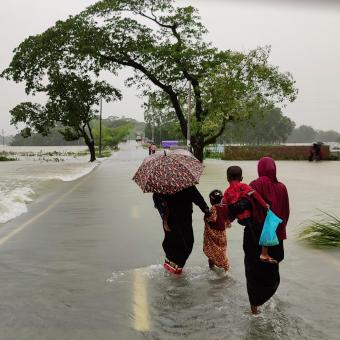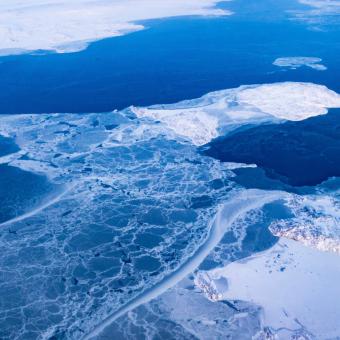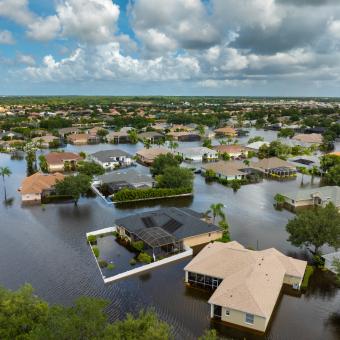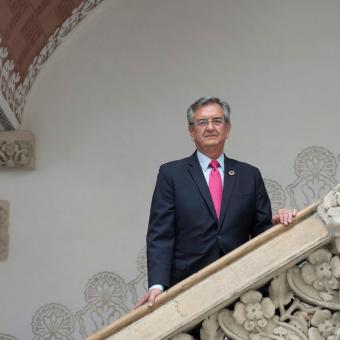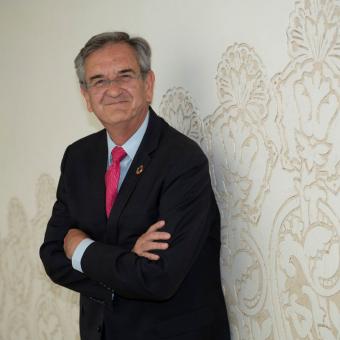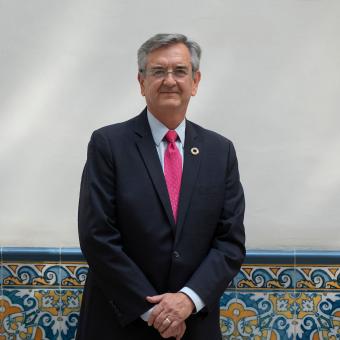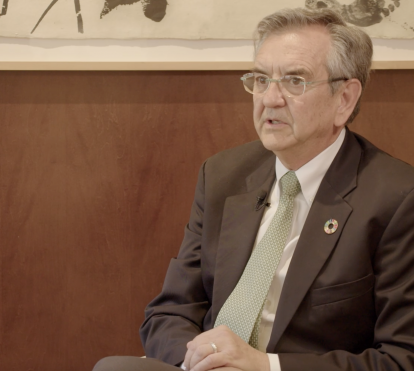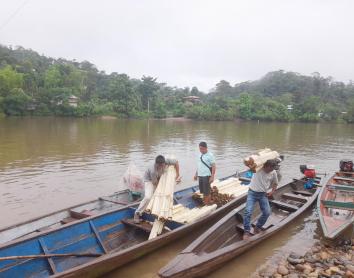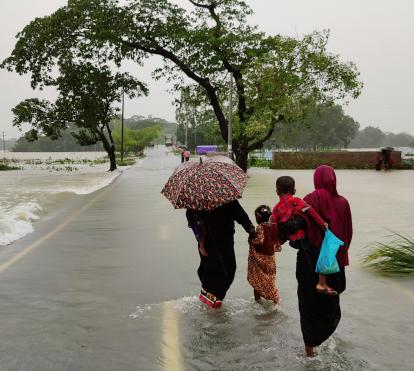
Unesco and the ”la Caixa” Foundation highlight the unequal impact of climate change and the measures taken to address it, and call for the protection of the most vulnerable
28.05.25
4 minutes readAccording to the report Who Bears the Cost? Addressing Inequalities from Climate Change and Climate Action, by 2050, 2.5 billion people could be exposed to severe weather conditions, including 239 million living in extreme poverty, with limited or no prospects of overcoming their precarious socioeconomic situation under increasingly hazardous climate scenarios. Vulnerable groups – such as women, Indigenous peoples, children and informal workers – are at significantly greater risk, with an estimated 1.4 billion women expected to be directly affected between 2040 and 2060.
UNESCO and the ”la Caixa” Foundation launched the report Who Bears the Cost? Addressing Inequalities from Climate Change and Climate Action this Wednesday at the Palau Macaya, International Centre of the Social and Human Sciences. The report calls for the integration of equity, social justice and human rights into climate policy, to ensure a fair and inclusive transition.
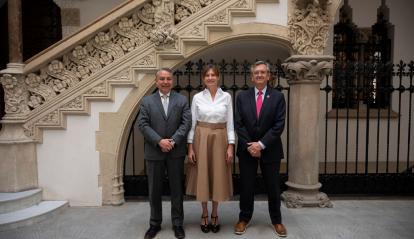
The report aims to highlight and address the deep social and economic inequalities that are both exacerbated by climate change and embedded in current climate policies. Among the proposed actions, it urges an increase in annual climate financing to 1.3 trillion dollars by 2035, with a focus on the Global South.
The research introduces a set of composite indices that assess how different populations and sectors will be affected under mid-century climate scenarios. Its findings reveal significant disparities in both exposure to climate hazards and the capacity to adapt – particularly among low-income and marginalised groups.
The report highlights that we are living in a world where the Global South faces an unequal burden of climate change:
- 3.6 billion people live in areas highly vulnerable to climate impacts.
- By 2050, 2.5 billion people could face extreme heat, with 239 million in
extreme poverty enduring temperatures above 35°C for over 12 weeks annually.
- 80 million forcibly displaced people already live in climate risk zones,
with up to 2.1 billion more at risk by 2070.
- Women, indigenous people, children and informal workers face heightened
risks, with 1.4 billion women directly impacted between 2040 and 2060.
- 325 million workers in manufacturing, mining and energy, including 108
million women and 106 million people over 45, are at risk due to the shift to
cleaner production.
- Cultural heritage is increasingly at risk, with 238 UNESCO World
Heritage Sites expected to face severe climate-related threats in the coming
decades, despite not currently being classified as endangered.
“As the climate crisis accelerates, so too must our commitment to those most affected by it. To rebuild public trust in climate action, we must start with individuals –especially the most vulnerable– as we risk deepening the very inequalities the climate emergency exposes,” said Sergi Loughney, deputy general manager of Corporate Affairs at the ”la Caixa” Foundation.
Gustavo Merino, Director for Social Policies at UNESCO added: “This collaboration with the ”la Caixa” Foundation confirms UNESCO’s belief that just climate solutions must address inequality from the outset.”
Drawing on evidence from diverse locations, regions and sectors, the report shows early impacts of global climate change are disproportionately burdening communities and nations that have contributed minimally to the crisis yet are acutely vulnerable to its effects. The richest 10% emit nearly 50% of global emissions, while the most vulnerable countries –Chad, South Sudan, Niger, Central African Republic and Somalia– face compounded crises of poverty, weak infrastructure and climate stress.
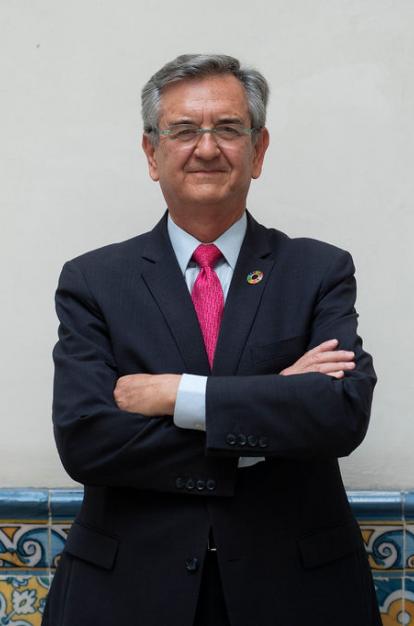
A key feature of the report is the new Social Vulnerability to Physical Climate Impacts Index, developed using data from UNDP, UNESCO and the World Bank. This index evaluates each country’s ability to withstand climate-related risks based on five core dimensions: health, wealth, gender inequality, rurality and age dependency.
The lead author of the report, Rodolfo Lacy, stated that “climate change is triggering profound and often unforeseen transformations in economies and societies around the world. Despite considerable global efforts, global warming continues to accelerate, while some mitigation policies are generating complex and unintended negative synergies that require urgent international attention. Without placing equity and justice at the heart of climate agendas, there is a serious risk of deepening existing inequalities, undermining global stability and obstructing the shared goal of sustainable development. The imperative for inclusive and equitable climate action has never been more pressing.”
Who
Is most at risk? Global vulnerability to climate impacts (2040–2060)
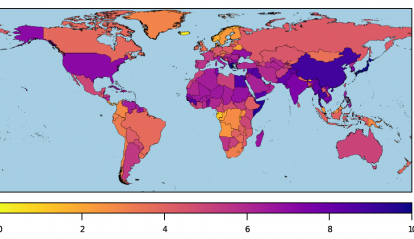
Climate policy
at a tipping point
Many socioeconomically vulnerable communities, lacking the infrastructure to handle extreme weather and gradual climate change, are facing a new climate normal. Tackling these vulnerabilities is key to building resilience. While aiming to address environmental concerns, many climate policies have unintentionally worsened inequality. Measures like carbon taxes and energy transitions often inadvertently place the burden on the poorest, who spend a larger share of their income on energy and basic goods. Low-emitting nations face the greatest climate impacts and transition costs, exacerbated by trade mechanisms like the EU’s Carbon Border Adjustment Mechanism and limited access to clean technologies.
Social backlash and policy priorities
Perceived unfairness in climate policies is driving social unrest, as seen in France’s Yellow Vests movement, farmer strikes in Germany, fuel subsidy protests in Ecuador and Kenya and uprisings in India and the Netherlands. Public opposition is slowing or reversing climate measures, especially when energy transitions disproportionately affect lower-income groups.
The report calls for:
- Increasing
annual climate finance to $1.3 trillion by 2035, focusing on the Global South.
- Expanding
social protection to cushion vulnerable groups during the green transition.
- Launching
large-scale reskilling programmes for workers in carbon-intensive sectors.
- Investing
revenues from carbon markets and green taxes in underserved communities.
- Accelerating
clean technology transfer through global cooperation.
- Applying
a “vulnerable-first” lens to all climate finance and adaptation strategies.
An ethical imperative
UNESCO stresses the importance of integrating ethical considerations and human rights into the climate agenda. Supported by the ”la Caixa” Foundation, initiatives like the UNESCO MOST Programme and community-led projects such as Gotita de Agua in Mexico are addressing local inequalities and promoting gender-responsive climate action.
